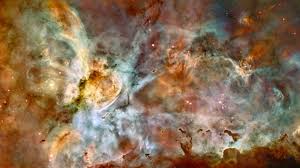As you'll remember (I wrote to a friend who'd asked if I knew Richard Strauss's Ein Heldenleben), I first heard the usual pairing of the Wagner Prelude and Liebestod
on May 4 1954.
One of the clearest things I've written is about that first time. It changed my life, and not so much changed as expanded beyond all expectation what music had been to me till then: traditional jazz, bop - the trumpet starring because I played one myself - Duke Ellington, Stan Kenton.
But after that experience, I couldn't get enough of what people oddly call 'classical' music, graduating to Mahler, Bruckner, Stravinsky, Shoenberg, Vaughan Williams, Debussy and all sorts of things by Delius and Nielsen and
Richard Strauss, who had been widely considered the most brilliant composer in
the world around the turn of the twentieth century but tarnished his reputation by
staying on in Hitler’s Germany.
The connection between the Wagner family and the Nazis no doubt accounts for much of the antagonism to that Richard too, not to mention his deeply unpleasant writing about Jews. Knowing nothing of all that at the time, I held Wagner in awe, thrilled and moved also by Ein Heldenleben and Don Juan, the Four Last Songs, Metamorphosen, Salome, glorious Der Rosenkavalier.
I can never quite get down in words what all this great music meant to me. It
was somehow or other about everything, mixing, and mixing up, beauty, love, hopelessness, all the confused yearnings of youth. I don’t sit now to listen to it like I did then because the memories that come with it sadden,
though I find myself listening on YouTube often enough. Ravel's Sheherazade there is as ravishing as ever.
It is still Wagner most. After all the years, as the productions move with the times, I see more than ever his remarkable intelligence and unique vision and feel more intensely his feeling for people, life and love.
Then I imagine him working in some room in Switzerland, or in the palazzo in Venice now a casino, hearing, getting it down, re-thinking, hearing again; in the middle of everybody else's ordinary day actualising Tristan and Isolde; to be free of the unearthly demand inside him alone in all the world.





